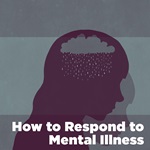I was in denial for most of my life. It wasn't until a few years ago that I realized that being an introvert could be a good thing. That's because people in our culture—and our small-group ministries—believe a lot of myths about introversion. I was one of them.
A few years ago while I was training a group of leaders, someone asked me, "What should I do about the introverts in my small group?" He went on to describe introverts as a nuisance: they didn't talk much, they weren't engaged, and they clearly didn't like people. What was the point of them even being in a small group?
Dispelling the Myths
As an introvert who loves (and is committed to) small-group ministry, I want to clear up a few common myths. Not only should introverts be involved in small groups, they're an incredible asset to your group.
1. Introverts are shy.
This is one of the most common misconceptions about introversion. Shyness is fear in social situations, specifically related to how we're perceived. Both introverts and extroverts can be shy. Introversion and extroversion, however, are based on stimulation and energy. Susan Cain, author of Quiet: The Power of Introverts in a World That Can't Stop Talking, says, "Shyness is about fear of social judgment. Introversion is more about how you respond to stimulation. Extroverts really crave large amounts of stimulation, whereas introverts feel most alive and most capable when they're in quieter, more low-key environments."
Another way to think about it is to identify what gives you energy or drains your energy. Groups, crowds, and loud, busy settings are highly energizing for extroverts. On the other hand, sitting in solitude near a lake could be incredibly difficult, draining, and even boring. Introverts are the exact opposite. Quietly working on projects, sharing coffee with a friend, or spending time in solitude energize introverts as they think and ponder. Large crowds and loud concerts leave introverts drained of energy. With this understanding, it's easy to see that shyness is not the same as introversion.
2. Introverts aren't engaged in small group.
You're leading a group discussion, and you notice that Dan hasn't said a word all night. He's sitting silently, looking at people who are speaking, and has his Bible out as you read the passages—but he never utters a word. Many group leaders assume that because Dan hasn't shared, he's disengaged. But there could be a lot more to the story.
Introverts do their processing internally. The fact that Dan's making eye contact with people and reading along from the Bible shows he's engaged. He might be noting how one group member's story reflects his own experience. He might be contemplating how the passage applies to his life. He might even be making a mental note to follow up with Sarah later in the week to see how her mother is doing. The point: Silence doesn't necessarily mean disengaged.
3. Introverts don't like people.
I remember taking the Myers-Briggs personality assessment in my high school psychology class. My results came back as clear as day: INFJ. The "I" stands for introversion, and it immediately caused me a lot of stress. I tried to hide my results from my classmates, covering up the giant "I" at the top of the page. I wholeheartedly believed that to be extroverted was to love people, to be outgoing, to be social. To be introverted was to hate people and to be a recluse. With this definition, being introverted was not a good thing in the social structure of high school.
But introverts love people, too. Extroverts and introverts, though, approach relationships differently. As an introvert, I prefer to connect deeply with a small number of people. I also hate small talk. If I'm going to invest energy in a relationship, I want to cut through the fluff and get to the meat sooner than later. I want to know the real you, and I want you to know the real me.
On the other hand, extroverts tend to have many more relationships that may not all go as deep. Extroverts are comfortable networking at dinner parties and striking up conversation with new acquaintances wherever they go. At a party, you'll find extroverts working the room, joyfully meeting everyone, and keeping the party going. You'll find the introverts chatting with a few others in the kitchen, getting to know another guest on the couch, or even smiling as they stand near the wall and look out over the party.
Sometimes I'm envious of the way extroverts can mingle at crowded events, totally in their element. But I'm incredibly thankful for the way my personality prompts me to take a deep dive with one person at a time. We both love people, but we approach relationships in two different yet valid ways.
4. Introverts aren't leaders.
When we believe that introverts won't ever be leaders, we rarely invest in them or choose them as apprentices. But we're mistaken when we believe introverts can't be powerful leaders.
In an article for the New York Times, Susan Cain writes, "We tend to associate leadership with extroversion and attach less importance to judgment, vision, and mettle. We prize leaders who are eager talkers over those who have something to say." Over at Forbes, Victor Lipman shares five reasons introverts make excellent executives—including the ability to listen, analyze, and give measured, risk-averse responses. The business world is beginning to recognize the power of introversion in leadership. What about the church?
In Introverts in the Church, Adam McHugh addresses the pervasive overvaluing of extroversion in the church. He explains that public expressions of faith are stressed, especially emotional expressions that often feel inauthentic to introverts. Further, he writes that modern evangelicals have "a hearing problem," where we preach and act before actually gaining a full understanding of situations. We value the "doer over the thinker" and full schedules over space and rest. And we expect our pastors to go first in these values.
Yet Barna reported that one out of four pastors is an introvert, and Leadership Journal conducted a poll where 37 percent of pastors self-reported as introverts. All the while, we call our introverted pastors to act extroverted in a million little ways. And rather than celebrate the way they lead as introverts, we celebrate the ways they meet our extroverted expectations.
The truth is that there are many introverted leaders in your church—in a variety of roles. Pastors who are able to deliver enlightening messages after weeks of study may be introverted. Coaches who are known for building deep, caring relationships may be introverts. Group leaders who easily take a back seat as they facilitate discussion so group members can share, process, and discover God's truth for themselves may be introverts. Even more shocking, you may be an introverted leader yourself. (You can take a free personality assessment and learn more about leading as an introvert.)
5. Introverts need to get out of their comfort zone to do ministry.
I recently heard a pastor speaking to his congregation about a need for more greeters. "All you have to do is say 'hi.' Even you introverts should be able to do that!" I cringed and sunk in my seat.
If you're not an introvert, it may be difficult for you to recognize that churches are constantly asking introverts to get out of their comfort zone to do "real ministry." We're told to jump up and down and clap our hands during a worship set filled with flashing lights and loud drums. We're expected to talk to as many people as we can during the newcomers lunch. And it starts as kids: Youth group members are asked to show their faith by being as loud and animated as possible at youth rallies.
So please, the next time you ask an introvert to "just get out of your comfort zone a little," know that we are—in a million ways, every single day, especially in the church. We're no strangers to gulping as we walk over to welcome a new person, and we're trying our best to talk to lots of people at the fellowship event. We know we'll be exhausted afterward, but we will do it in the name of ministry.
For once, though, let's consider what introverts do really well when it comes to ministry. Introverts pray quietly and earnestly with people after service. They not only meet newcomers but really get to know them. They teach us about the quieter, more contemplative spiritual disciplines like fasting, solitude, and journaling. They care deeply for the group member who cries as she shares about her struggles. And many introverts are busy behind the scenes scheduling, organizing, and making all those exciting ministry plans come to fruition.
Introverts in Your Group
If you haven't already realized it, your small group is filled with introverts—and that's a good thing. It wouldn't be the church if only one type of person were represented. It wouldn't be the body of Christ, if we all had the same strengths and functions. So in response to the church leader's question, "What should I do with the introverts in my group?" I have a few suggestions:
1. Celebrate their strengths.
Whether it's being a great listener, organizing the snack list, mentoring group members one-on-one, or contributing wisdom in group after they've had time to process, learn to celebrate introverts—publicly. Our culture and our churches are telling introverts that they're not enough in so many subtle ways that even the most headstrong introverts begin to believe the lie after a while. Point out their strengths in group, thank them for sharing their wisdom, and help them see how they're contributing in valuable ways.
2. Watch what you say and do.
The message is subtle that extroversion is the ideal—but it's constant. When the pastor said even introverts should be able to handle saying "hello," he sent the message loud and clear—if you aren't extroverted, you better act like it if you want to do ministry. Comments like his, even if they're said in a joking tone, belittle and shame introverts and continue unfair—and untrue—stereotypes.
Much of this messaging, though, is unintentional. As leaders, we must be diligent in examining our words and actions for the unintended messages they communicate. If you always choose extroverted apprentices, you're communicating that extroverts make better group leaders. Similarly, if you joke about the quieter person being shy, you communicate that talking is more important than listening. Recognize that you're intentions are good, but examine what you're unintentionally communicating.
Be part of the solution by intentionally communicating that silence is okay and choosing introverts to lead in various ways. When you let introverts take on leading responsibilities, you'll empower others and be a healthier leader as you focus on only a few responsibilities.
3. Step out of your comfort zone.
Introverts are constantly stepping out of the comfort zone to fit in, especially in church. In fact, many introverts are so good at acting extroverted that you may be surprised to learn they're introverted. Show solidarity by being willing to step outside your comfort zone every once in a while.
Invite a group member who is passionate about the more contemplative spiritual disciplines to lead a night of prayer stations or lectio divina for your group. Plan a group retreat that allots several hours for solitude. Intentionally work on your listening skills. Spend an evening catching up with just one group member, focusing on him or her, and asking follow-up questions without talking about yourself.
My prayer is that in small groups we might celebrate both introversion and extroversion, learn from one another, and affirm one another in the unique ways God has made us.
—Amy Jackson is managing editor of SmallGroups.com.











